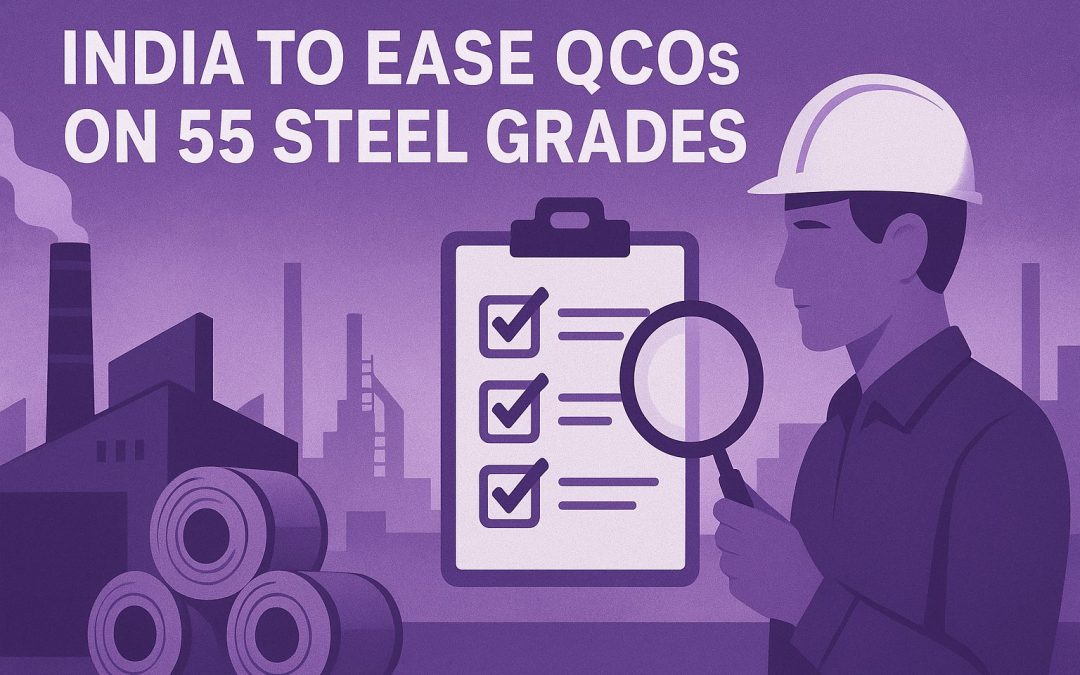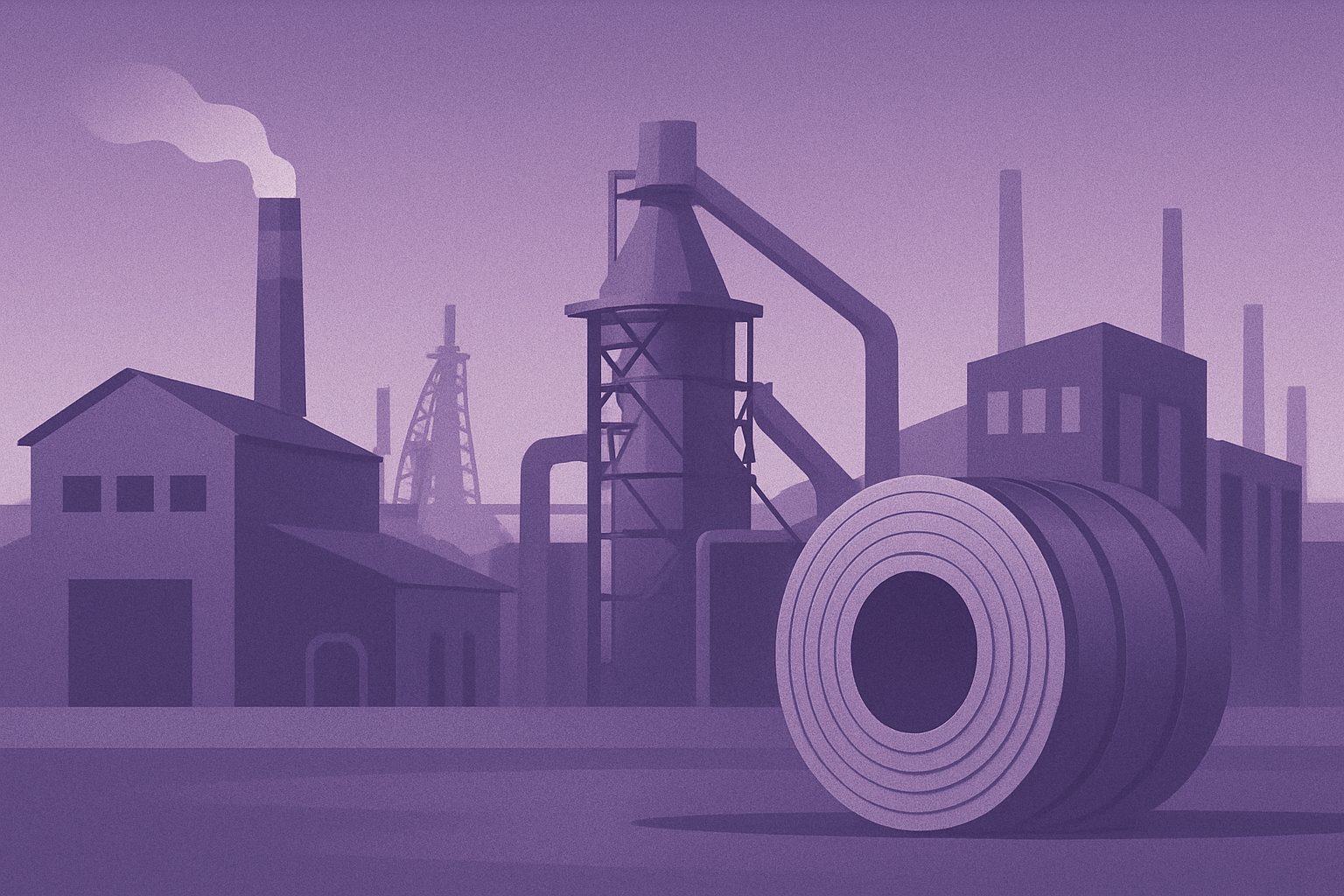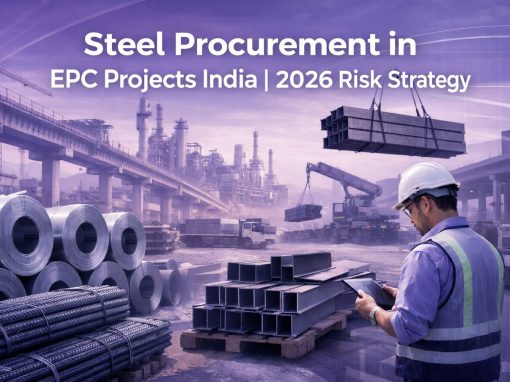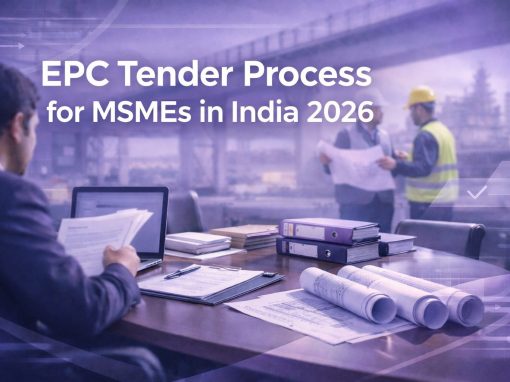Table of Contents
Steel quality matters. It is the backbone of infrastructure, automotive, and electrical sectors. Poor-quality steel can weaken bridges, damage car bodies, or degrade electrical appliances. That is why regulatory oversight, such as steel QCOs (Quality Control Orders), plays a vital role.
Recently, the Ministry of Steel has floated a proposal to suspend QCOs on 55 specific steel grades. According to reports from ET Infra and The Economic Times, 42 of these QCOs could be suspended for three years, while the remaining 13, related to specialty steel, may be put on hold for one year.
If implemented, this move will directly affect downstream industries that rely on the 55 specific steel grades, mainly MSMEs, automotive component makers, engineering goods manufacturers, and electrical appliance producers. These sectors may see easier sourcing and lower costs.
Steel importers and domestic producers of those grades are also directly impacted, as sourcing rules and competition may shift. Those not directly affected include sectors that use critical, safety-sensitive steel such as defence, atomic energy, and major infrastructure, since their steel QCOs are expected to remain in place. Broader construction and manufacturing sectors may feel only indirect effects, depending on how supply chains adjust over time.
What Are Steel Quality Control Orders (QCOs)
Quality Control Orders or QCOs, are regulatory orders issued by the Ministry of Steel. They require certain steel products to meet standards set by the Bureau of Indian Standards (BIS). In simple terms, a QCO makes it mandatory for producers or importers to follow specific quality rules before selling those steel grades in India.
BIS certification is the mechanism behind this system. To get certified, a manufacturer must test its steel in approved laboratories and prove that the material meets the relevant Indian Standard (IS). Once certified, the product carries the well-known ISI mark. This mark tells users that the steel has passed quality checks and is safe for use. Without this certification, companies cannot legally supply those QCO-covered grades.
QCOs have expanded steadily over the past decade. According to the Ministry of Steel, 151 steel standards have been brought under QCOs so far. This growth reflects the government’s push to improve product quality across the industry. When QCOs were introduced, the main aim was to prevent sub-standard steel from entering the Indian market.
QCOs have also been linked to “Make in India” and Atmanirbhar Bharat goals. By enforcing Indian standards, the government hoped to support domestic manufacturers and bring consistency to steel used in construction, infrastructure, automotive parts, and electrical goods.
However, the system has faced criticism. Many manufacturers, especially smaller firms, say compliance can be costly and time-consuming. Testing, certification, and documentation add to operational overheads. Importers have also struggled when Indian standards do not match global grades, making some needed materials harder to source. This has at times created supply gaps, trade friction, and delays for industries that depend on specialised steel.
Details of the Proposed Suspension
- Suspension of 55 BIS Standards
Reports suggest that QCOs on 55 steel grades may be suspended. These include both general-purpose and speciality grades that currently require BIS certification. - Different Suspension Durations
Out of the 55 grades, 42 may be suspended for three years. Another 13 speciality steel grades are proposed to be suspended for only one year. This shorter period reflects their more critical, high-performance use. - Recommendation by a High-Level Committee
The idea is based on suggestions from a high-level committee set up to study industry concerns. Their review appears to have highlighted supply gaps and compliance challenges faced by users and importers. - Annual Review Mechanism
Even if the suspension goes ahead, the impact is expected to be reviewed every year. This would allow the government to reinstate or adjust the suspension if issues arise. - 15 Additional Standards Under Review
Another set of 15 steel standards is being sent to an Inter-ministerial Group (IMG). This group will examine whether these standards also need relaxation or whether they should remain under steel QCOs. - Purpose: Easing Access to Inputs
The proposal aims to “enable user industries” to import steel of these grades from non-licensed or non-BIS-certified suppliers. This could also allow manufacturers to use non-BIS-compliant steel for certain applications, easing raw material sourcing. - Not a Blanket Removal of QCOs
Some steel QCOs will stay in place. Standards linked to defence, atomic energy, or safety-critical applications are likely to remain unchanged. These areas require strict quality control for public safety. - Notification Expected Soon
Media reports say a formal notification may be issued soon, but nothing has been implemented yet. The proposal is still described as “likely” or “expected”, and final approval is still pending.
Reasons Behind the Proposal
Addressing Raw Material Shortages
The proposal aims to ease raw material sourcing for user industries. MSMEs, automotive suppliers, and electrical manufacturers have reportedly faced shortages of certain steel grades, especially those not widely produced in India.
Reducing Compliance Burdens
A non-financial regulatory reform panel under NITI Aayog has suggested lowering unnecessary compliance costs. Suspending some QCOs would reduce testing, certification, and paperwork requirements for both domestic producers and importers.
Improving Industry Competitiveness
Allowing imports of non-BIS-certified steel may help industries stay competitive. Some specialised grades are available globally but not produced locally at sufficient volumes or at competitive prices. Flexibility in sourcing could strengthen export-oriented manufacturing.
Supporting Trade and Supply Chain Efficiency
With relaxed steel QCOs, companies could source materials more easily from international suppliers. This may smoothen supply chains and reduce delays linked to limited domestic availability.
Balancing Producer and Consumer Interests
The Ministry of Steel appears to be trying to balance strict quality control with industry needs. A senior official has said they must “balance interests of steel producers and consumers,” signalling that both safety and growth are being considered.
Aligning with Broader Industrial Strategy
The idea could also fit within “Make in India” and wider industrial growth goals. Ensuring steel availability is essential for sectors like engineering goods, autos, and electrical manufacturing.
Encouraging Downstream Manufacturing
Easier access to steel inputs may lower production costs for downstream industries. This could support higher output, especially for MSMEs that depend on affordable and flexible raw material options.
Supporting Economic Competitiveness
By opening sourcing channels and reducing bottlenecks, the proposal seeks to strengthen India’s manufacturing base, improve efficiency, and boost overall competitiveness.
Potential Benefits of the Proposed Suspension
| Benefit Area | Explanation |
| Greater Access for Downstream Industries | MSMEs, automotive suppliers, and electrical manufacturers may find it easier to source the exact steel grades they need. The suspension could reduce shortages and provide more flexibility in choosing suppliers. |
| Lower Input Costs | With more sourcing options and fewer certification-related expenses, some user industries may see reduced raw material costs, especially for specialised or imported grades. |
| Import Flexibility | The proposal would allow imports of the 55 grades without BIS licence requirements. This could open cheaper or faster supply routes, particularly when domestic production falls short. |
| Use of Non-BIS Steel for Certain Applications | Industries may be able to use non-BIS-compliant steel for non-critical applications, helping reduce delays and easing procurement bottlenecks. |
| Boost to Manufacturing Output | Smoother access to materials could help manufacturers ramp up production. Sectors that rely on specific grades, such as engineering goods, auto components, and electrical appliances, may benefit the most. |
| Reduced Disruptions in Production | Companies that earlier faced delays due to testing, certification, or limited supply may experience fewer stoppages or slowdowns. |
| Regulatory Efficiency | The annual review provision offers a more flexible regulatory approach. It allows the government to suspend rules temporarily but reintroduce them quickly if quality or safety concerns arise. |
| Improved Supply Chain Stability | A wider pool of global suppliers may reduce the risks linked to domestic shortages, high prices, or sudden demand spikes. |
| Trade Liberalisation | The proposal aligns India more closely with global steel trade, especially for grades not widely produced at home. This could make sourcing more efficient and competitive. |
| Short-term Economic Relief | In the near term, the suspension could ease input cost pressures and support sectors struggling with rising production costs or tight margins. |
Concerns and Criticisms
Quality Risks
Suspending steel QCOs may allow lower-quality steel into the market. Non-BIS steel might not meet Indian testing standards, creating risks in performance and reliability.
Safety Concerns in the Long Term
Poor-quality steel in infrastructure or structural work can affect durability. Over time, this may increase the risk of faults, failures, or safety incidents.
Impact on Domestic Producers
Indian steelmakers fear that relaxed rules could weaken demand for BIS-certified products. Lower-priced imports may undercut local producers who invest in quality and certification.
Competitive Imbalance
Producers who follow strict BIS norms may find themselves competing with cheaper, non-compliant alternatives, affecting profitability and capacity utilisation.
Trade and Dependency Risks
More imports may increase reliance on foreign suppliers for certain grades. If monitoring is weak, there is a risk of dumping low-grade or cheap steel into the Indian market.
Supply Chain Vulnerability
Dependence on external suppliers could expose industries to global price swings, shipping disruptions, or geopolitical tensions.
Regulatory Uncertainty
The proposed suspension lasts only 1–3 years, with annual review. This creates uncertainty for companies planning long-term investments in machinery, certification, or new product lines. The ongoing review of 15 additional standards adds further unpredictability.
Policy Instability Concerns
Frequent changes in steel QCO rules may make businesses wary of committing to expansion or upgrading facilities.
Strategic and Security Risks
Some steel QCOs remain for defence and critical sectors. This highlights that certain grades are strategically important, suggesting potential risks if too many standards are relaxed elsewhere.
Risk of Misuse
Without strong oversight, non-critical applications may end up using steel meant for stricter standards, leading to quality lapses.
Stakeholder Perspectives
Government/Ministry of Steel
The government is likely to frame this proposal as a practical way to ease supply bottlenecks and support industrial growth. Officials may highlight that the plan has a limited scope and will be reviewed every year, stressing that it is not full deregulation.
Downstream Industries (MSMEs, Auto, Engineering)
These sectors will probably welcome the added flexibility. Easier access to needed grades could lower costs and speed up production. However, businesses may still ask for clear guidance on which grades are included and how long the suspension will last.
Steel Producers
Reactions may be mixed. Some producers may benefit from higher overall demand if manufacturing activity rises. Others may worry about cheaper, non-BIS imports affecting their market share and undermining investments in quality.
Safety and Infrastructure Experts
Experts may warn against lowering quality barriers, especially for structural or long-life applications. They may call for strong monitoring so poor-quality steel does not slip into critical sectors.
Trade and Policy Analysts
Analysts may see this as part of a wider push to reduce regulatory burden. But they might also caution that increased imports could raise long-term dependence on foreign suppliers.
Possible Scenarios/Future Outlook
| Scenario | What Could Happen |
| 1. Suspension Increases Supply and Lowers Costs | Downstream industries may boost production due to easier access to materials. If the benefits are clear after 1–3 years, the government may extend the suspension or consider permanently removing steel QCOs for some non-critical grades. |
| 2. Quality Issues Arise | If non-BIS steel leads to defects, safety concerns, or performance problems, the government may tighten controls. Steel QCOs could be reinstated quickly, and the review process could become stricter. |
| 3. Mixed Outcome | Some grades may stay suspended while others return under QCO. The government may adopt a calibrated approach, keeping exemptions only for non-critical or low-risk applications. |
| 4. Strategic or Trade-related Shifts | India may rely more on global suppliers for certain grades. Domestic producers might adjust capacity or shift focus to higher-value products. This scenario could also influence future policies related to “Make in India” or PLI schemes for speciality steel. |
Policy Implications & Recommendations
For Policymakers
Policymakers should maintain strong monitoring to ensure that imported or non-BIS steel still meets minimum safety standards. The annual review needs to be used wisely by collecting data, consulting industry groups, and involving safety experts. A phased approach may help. QCOs can be reintroduced gradually based on risk and sector-specific needs.
For Steel Industry
Downstream manufacturers should identify which of the 55 proposed grades are relevant to their operations and assess whether imports or local sourcing offer better value. They may also need internal checks to ensure quality when using non-BIS steel. Steel producers should plan product strategies that clearly separate BIS-certified offerings for critical applications from non-certified products for lower-risk uses.
For Regulatory Bodies
Regulators like BIS should simplify and speed up testing and certification processes to ease the compliance load on businesses. At the same time, they should build fast, reliable surveillance systems to test non-certified steel that enters the market during the suspension period.
For Trade and Economic Strategy
Trade planners can use this window to diversify import sources while maintaining oversight. The proposal also offers a chance to attract investment in domestic speciality steel production, helping reduce long-term dependency on imported grades and strengthening India’s industrial base.
Conclusion
The proposal to suspend QCOs on 55 steel grades aims to ease sourcing, cut compliance costs, and support downstream manufacturing. It could help MSMEs and other industries access materials faster and at lower prices. But the move also brings trade-offs, including quality risks, safety concerns, and greater reliance on imports.
The key will be balance. Strong monitoring and careful annual reviews will be essential if the suspension is introduced. Since the policy is still not final, the next phase will be critical in shaping how it works in practice.
Industry, policymakers, and experts should stay engaged and offer clear feedback to ensure that any flexibility does not compromise long-term quality and safety.
Looking to procure steel?
Tata nexarc helps manufacturers, builders and MSMEs source certified steel products, compare prices, and choose the right grade as per IS codes—with complete traceability and procurement confidence.
FAQs
What changes are being proposed in steel regulations?
Are the changes final?
Why suspend QCOs?
Which steel grades are covered?
Who benefits the most?
Will imports become easier?
What are the main risks?
Will all QCOs be removed?
Can the government reverse the suspension?
What should industry do now?
A product manager with a writer's heart, Anirban leverages his 6 years of experience to empower MSMEs in the business and technology sectors. His time at Tata nexarc honed his skills in crafting informative content tailored to MSME needs. Whether wielding words for business or developing innovative products for both Tata Nexarc and MSMEs, his passion for clear communication and a deep understanding of their challenges shine through.








